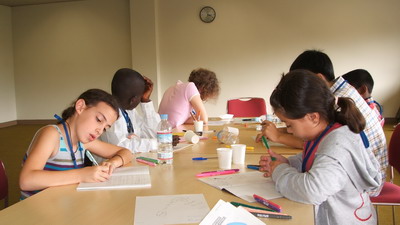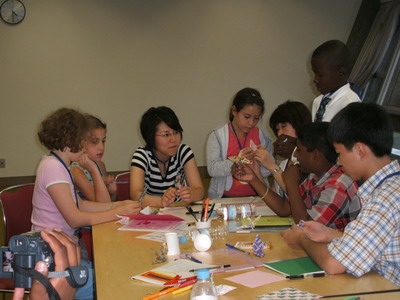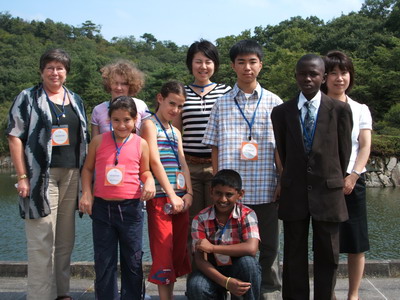The Interfaith Council on Ethics Education for Children continues to test the Ethics Education resource kit it is developing. The resource kit which is being tested in different situations around the world, has so far been tested in five workshops. TheKyotoworkshop which was the fifth in the line, brought together children and young persons from Christian, Muslim, Jewish, Hindu, Budhist and African Indigenous traditions. So far, the kit has been tested inSweden,Colombia,IndiaandSwitzerlandand lately,Japan.
The Interfaith Council on Ethics Education for Children held a day-long workshop for children on various aspects of the Ethics Education resource kit being developed. The Workshop which was conducted alongside  the 8th World Assembly of the World Conference of Religions for Peace (WCRP) brought together children and youth from various GNRC world regions and countries, including
the 8th World Assembly of the World Conference of Religions for Peace (WCRP) brought together children and youth from various GNRC world regions and countries, including
Six children who also participated in the colorful opening and closing ceremonies of the World Conference of Religions for Peace 8th World Assembly were introduced to various aspects of the resource kit.
The workshop began with individual silent prayers, after which the Secretary General of the Interfaith Council on Ethics Education for Children, Ms.
 Ms. Ucko described to the children and youth attending the workshop about the Arigatou Foundation, the Global Network of Religions for Children (GNRC), and the Interfaith Council on Ethics Education for Children.
Ms. Ucko described to the children and youth attending the workshop about the Arigatou Foundation, the Global Network of Religions for Children (GNRC), and the Interfaith Council on Ethics Education for Children.
Thereafter, Ms. Masue Suzuki took the children and young persons through an exercise to know each other. Ms. Ucko introduced to the children the issues of respect and empathy, and how they affected the ways they looked at other people.
Dr.
The parts of the Interfaith Ethics Education resource kit tested involved role plays, reflections and getting to know and appreciate various ways of resolving conflicts in non-violent ways.
The children and youth were also taken through various exercises in which they were made aware of the different ways they could transform the world now and in future.
 The facilitators of the workshop included Ms.
The facilitators of the workshop included Ms.
Children and youth representatives included Anna Elisabeth Beaven from England, (Christian tradition); Sana Hamdan from Jordan, (Islamic tradition); Maya Mark from Israel, (Jewish tradition); Hisayuki Iwasaki from Japan, (Buddhist tradition); Maheswaran Thuwakaran from Sri Lanka, (Hindu tradition); and Albert Akroef Ocancey from Ghana, (African Indigenous tradition).

